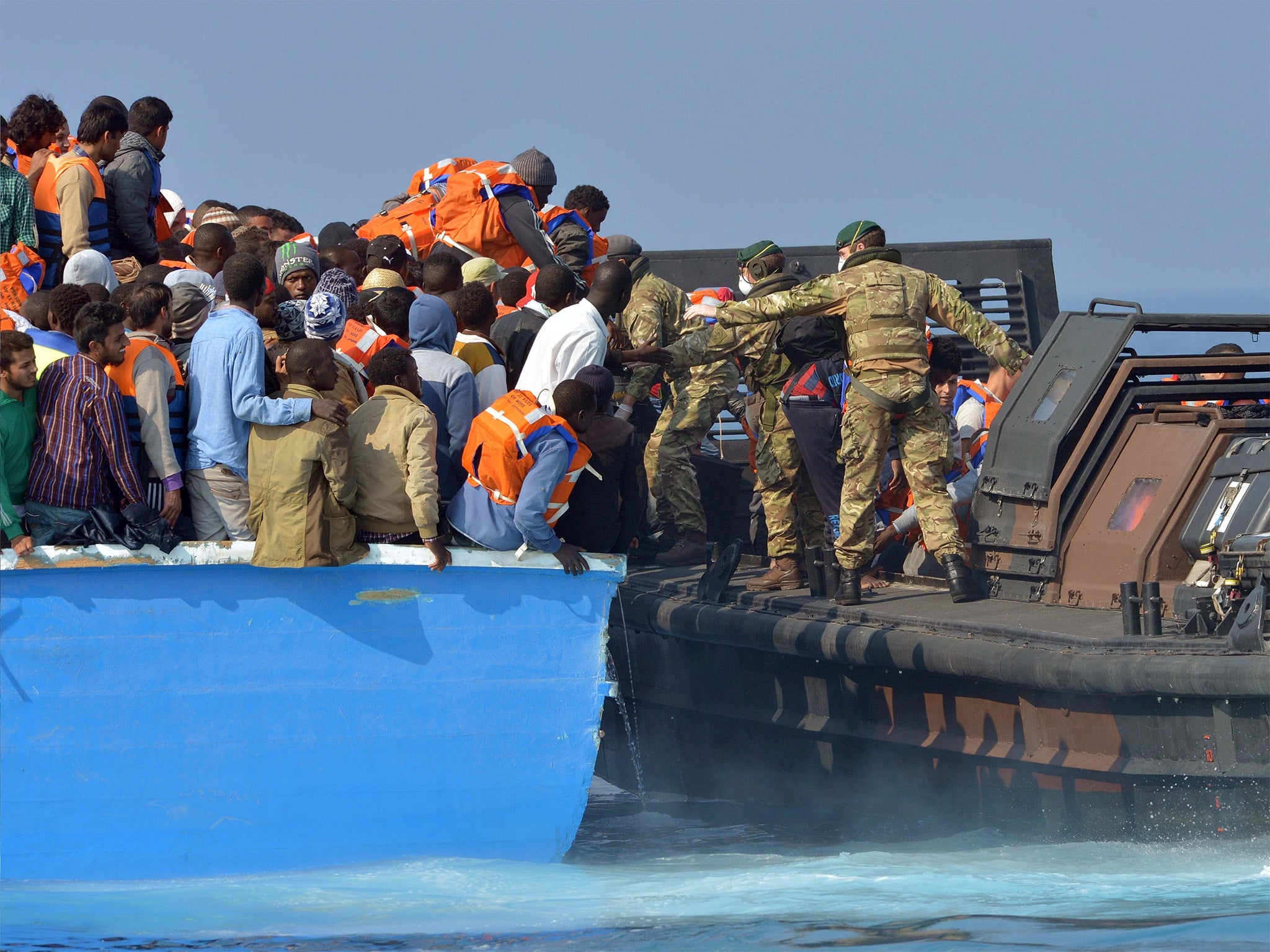Your support helps us to tell the story
From reproductive rights to climate change to Big Tech, The Independent is on the ground when the story is developing. Whether it's investigating the financials of Elon Musk's pro-Trump PAC or producing our latest documentary, 'The A Word', which shines a light on the American women fighting for reproductive rights, we know how important it is to parse out the facts from the messaging.
At such a critical moment in US history, we need reporters on the ground. Your donation allows us to keep sending journalists to speak to both sides of the story.
The Independent is trusted by Americans across the entire political spectrum. And unlike many other quality news outlets, we choose not to lock Americans out of our reporting and analysis with paywalls. We believe quality journalism should be available to everyone, paid for by those who can afford it.
Your support makes all the difference.The European Union’s renewed rescue operation for migrants crossing the Mediterranean has already saved over 2,900 lives in less than two months, the Ministry of Defence says.
Last month the UK dispatched HMS Bulwark, a warship capable of carrying two helicopters, to join in the international effort after a series of high-profile boat disasters led to a surge in deaths.
Around 700 people died in a single incident in late April on top of another 900 who had already previously been killed that year.
The rescues performed by the new operation have contributed to a fall in the death rate in May down from 329 in May 2014 to fewer than 100 in May 2015, according to the United Nations.
“The Royal Navy is playing a full part in the international effort to save lives at sea,” said defence minister Penny Mordaunt.
“HMS Bulwark deployed on 4 May 2015 and is working closely with the Italian Maritime Rescue Coordination Centre; efforts so far have saved over 2,900 lives.”
The in-kind assistance provided to the Italian coastguard replaces Operation Mare Nostrum, which was cancelled amid budget cuts in Italy and initial international reticence to help.
In October last year the Government said it did not support planned search and rescue operations, stating that they encourage more migrants to come to Britain.
“We do not support planned search and rescue operations in the Mediterranean,” said Foreign Office minister Baroness Anelay at the time.
“We believe that they create an unintended “pull factor”, encouraging more migrants to attempt the dangerous sea crossing and thereby leading to more tragic and unnecessary deaths.”
This position was revised by David Cameron after the surge in deaths, however.
The figures come as EU interior ministers discuss how to distribute the refugees who make it across the sea between European countries.
Most currently make landfall in Italy, Greece or Malta, but there is a growing view amongst Europe’s ministers that other countries should take a fairer share.
The UK has said any quota plan is unacceptable, however.

Join our commenting forum
Join thought-provoking conversations, follow other Independent readers and see their replies
Comments